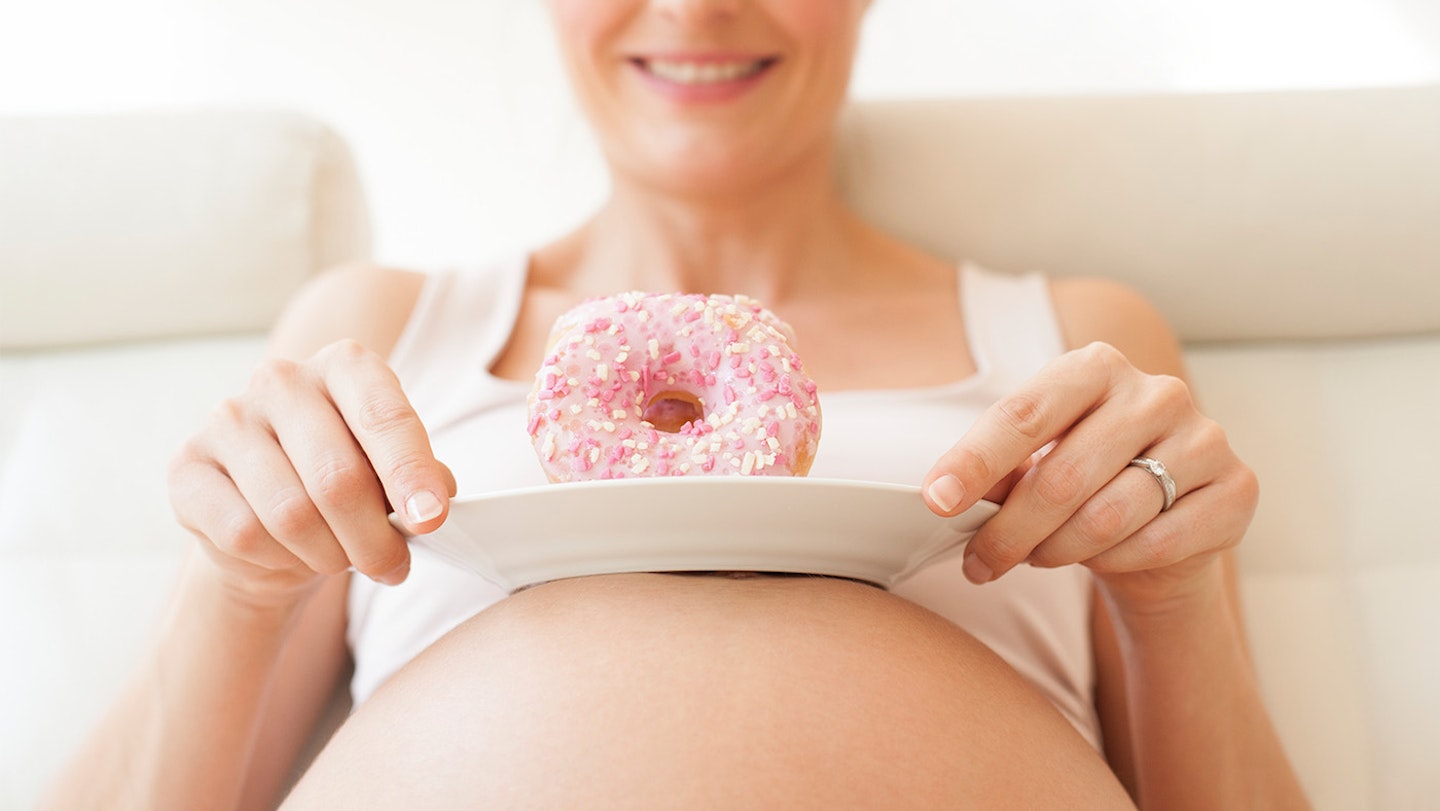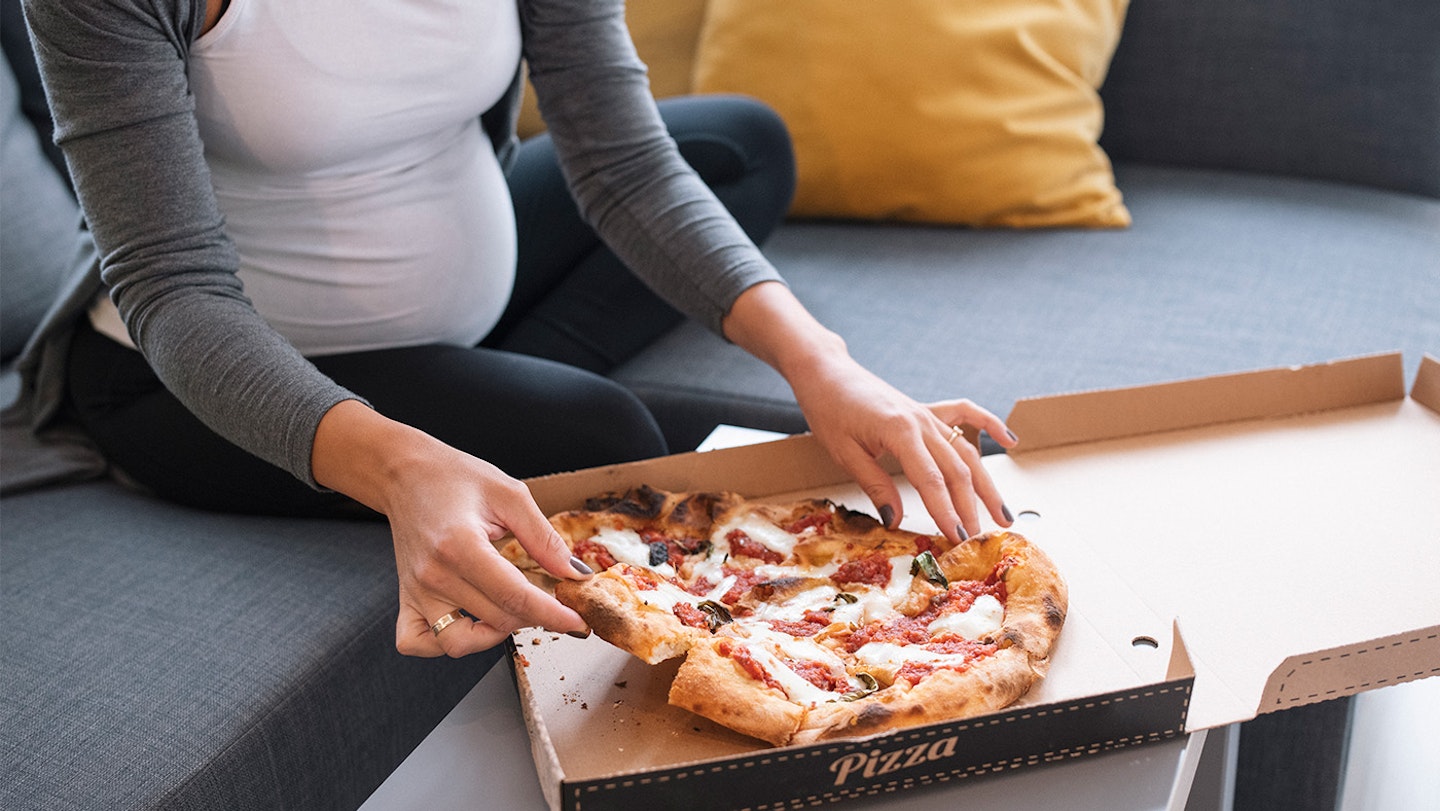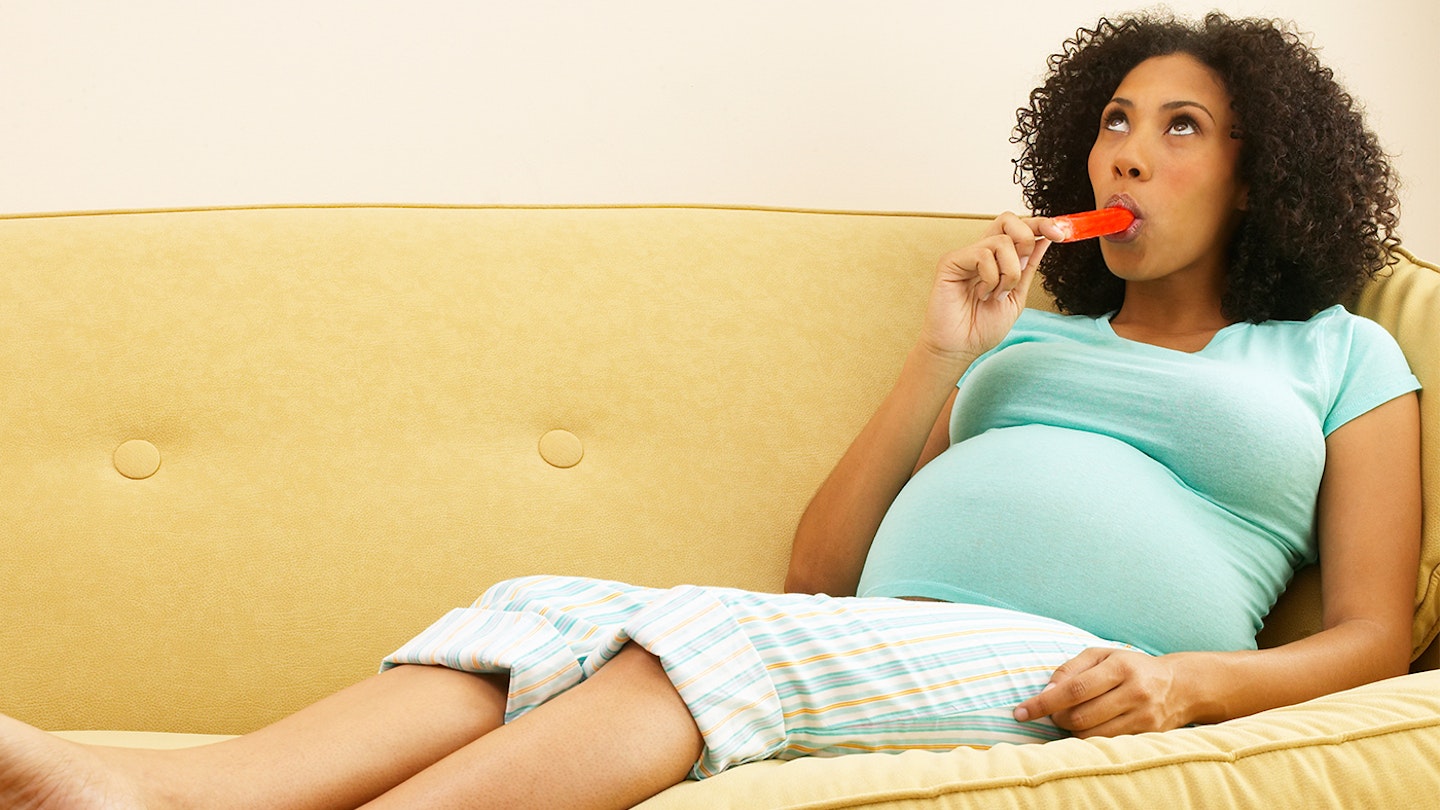There are so many changes you’ll experience when you're expecting, from all those types of pregnancy hormones to body changes and of course, your appetite - after all, you aren’t just feeding one tum anymore! A symptom that most women experience is some sort of food craving.
There are lots of weird cravings stories out there, but for most of us, we just crave something specific, or maybe a food combination we'd never have thought of usually. Your cravings will be personal to you and your pregnancy.
While it's common to get cravings when you're having a baby, with many getting different cravings for each pregnancy they experience, you may be wondering when do cravings in pregnancy start?
When do cravings in pregnancy start?
There’s not actually an exact time you can pinpoint when pregnancy cravings will start, as it does vary from woman to woman, with some not having any pregnancy cravings. However, if you do start to get the munchies, the NHS says it’s most likely to be during your first trimester, but sometimes it can be as early as five weeks into your pregnancy. Your cravings will then usually peak in your second trimester and start to subside during your third trimester.
Again, what you will crave differs from person to person; some women will be drawn towards fatty, salty or sweet foods, while others sometimes start to love foods they didn’t even like before pregnancy. You may even find yourself craving the weirdest of things, like ice! Either way, it’s safe to say you most probably aren’t going to reach for the healthiest food options during this time, so don’t be hard on yourself.
When do pregnancy cravings start?
While it is believed that pregnancy cravings tend to subside in the third trimester, it really does differ from woman to woman. "Cravings may be short or longer lasting in pregnancy," says Midwife Pip, midwifery sister, speaker and publisher. "Some women will go through pregnancy without a single craving, whereas for others cravings will last the duration."
What causes pregnancy cravings?
There isn’t an exact proven answer as to why you get cravings when pregnant. Hormone fluctuation is thought to be one possible reason, as it affects your smell, taste and appetite. It may also be down to the fact that your body is working doubly as hard as it adapts to cater for two beings.

Common pregnancy cravings
Below are some of the most popular food cravings you may find yourself wanting during your pregnancy:
Sweet cravings in pregnancy
Getting a sweet tooth is one of the most common (and enjoyable!) pregnancy cravings, with lots of women reaching for sugary snacks, such as chocolate. While it's fine to indulge in the sweet stuff while you are pregnant, you should be careful to keep an eye on this to ensure that you aren't doing it too often and only as part of a healthy diet. An increased intake of sugary foods could potentially lead to gestational diabetes and weight gain.
Dairy cravings in pregnancy
Another common craving during pregnancy is dairy - whether that's milk, yoghurt or cheese. Because these products contain the mineral calcium which helps your baby develop healthy bones and teeth (and keep yours tip top too!), this is a pretty useful craving to have. Just be sure to avoid any dairy that is made with unpasteurised milk and clue up on which cheese is safe to eat during pregnancy. Products made with unpasteurised ingredients can potentially contain Listeria bacteria, which can harm you and your baby.
Fast food cravings in pregnancy
While now might feel like the perfect excuse to reward yourself with a Chinese or that three-cheese pizza you usually try to abstain from, like with sweet cravings, these must be enjoyed occasionally as part of a balanced diet. If you find your fast food cravings are constant, consider alternatives like homemade sweet potato fries or even trying out a fakeaway recipe.

Spicy food cravings in pregnancy
If you've noticed you now have a penchant for spicier foods, it's likely that this is your craving. While this is completely normal, you may want to try and avoid spicy food if you're experiencing pregnancy heartburn as it's been found spicy foods can cause or even aggravate this.
Fruit cravings in pregnancy
Fruit is a brilliant craving during pregnancy as it's an excellent source of nutrients for you and your little passenger. In fact, the NHS recommend eating at least five portions of a variety of fruit and vegetables every day. This can include fresh, frozen, canned, dried or juiced fruit. You can even get creative and blitz a fruity smoothie.
Carbohydrate cravings in pregnancy
Pregnancy will physically drain you at times, which is why pasta, bread, potatoes and other carbs are popular as they help to refuel your body - as well as being very tasty. Thankfully it's easy to swap to healthier versions of these foods by choosing options such as wholegrain bread and pasta instead. Fibre-rich foods like this are important when you're expecting and are great for reducing constipation in pregnancy.
Pickles cravings in pregnancy
So you may not have reached for these on a daily basis, but that can all change when you’re pregnant. Pickles are a classic pregnancy craving and have a high sodium content that pregnant women crave and can even help with muscle cramps. Just keep an eye on how much you have as too much salt can increase the risk of preeclampsia.
Why are some pregnancy cravings so strong?
As we've mentioned, there isn't an exact physical reason for cravings. Because your hormones change, this can lead to changes in the receptors of your tongue. Obviously, that can create aversions, but it could also mean your pregnancy cravings feel more intense. This may become more noticeable if you've been pregnant before, but this time your cravings feel more intense than in your previous experiences.
What happens if you ignore pregnancy cravings?
"Food cravings and sudden food aversions may have something to with the effects of pregnancy hormones, which can change the way some foods taste and smell" explains Pip. "Although some fortunate women will crave healthy foods such as fruits or yoghurt, for many the cravings are for more sugary or processed foods such as cake, bread and crisps. It is ok to give in to the occasional food craving, as long as you continue to eat a good variety of healthy and nourishing foods."
Is it normal to have no pregnancy cravings?
If you've found you haven't experienced any pregnancy cravings and are worried this means something is wrong, don't fret. "Surges in pregnancy hormones can cause varying degrees of sensory changes to our bodies from an enhanced sense of smell, change in taste preferences, aversions to certain foods and cravings for others. Some women will experience all of these sensory changes whilst others experience none, it is very normal either way," Pip reassures.
Are pregnancy cravings and the sex of the baby related?
While you may have heard old wives' tales that indicate the type of craving you have is linked to the sex of your baby, this is very unlikely and there is no evidence to support cravings for certain foods being linked to the sex of your baby. There's no harm in testing out a few old wives' tales for some fun speculation though.
When should I consult my doctor?
We've all heard those stories of mums-to-be craving coal or sofa stuffing, but is it actually a thing? "Some pregnant women develop a craving to eat substances that are not food, such as chalk, clay, laundry starch or soap," Pip says. "This is a condition called pica, and it may indicate a mineral deficiency or severe anaemia. Pica is thought to be fairly rare in well-nourished women from developed countries. See your doctor or midwife if you develop cravings for non-food items."
About the expert
This article contains expert advice from Midwife Pip. Midwife Pip is a truly passionate midwife and advocate for the profession, bursting with knowledge. Pip is an experienced, practicing Midwifery Sister, MSc graduate, founder of Midwife Pip Podcast, Hypnobirthing and Antenatal Educator, co-author of published research and very importantly, a mum.
